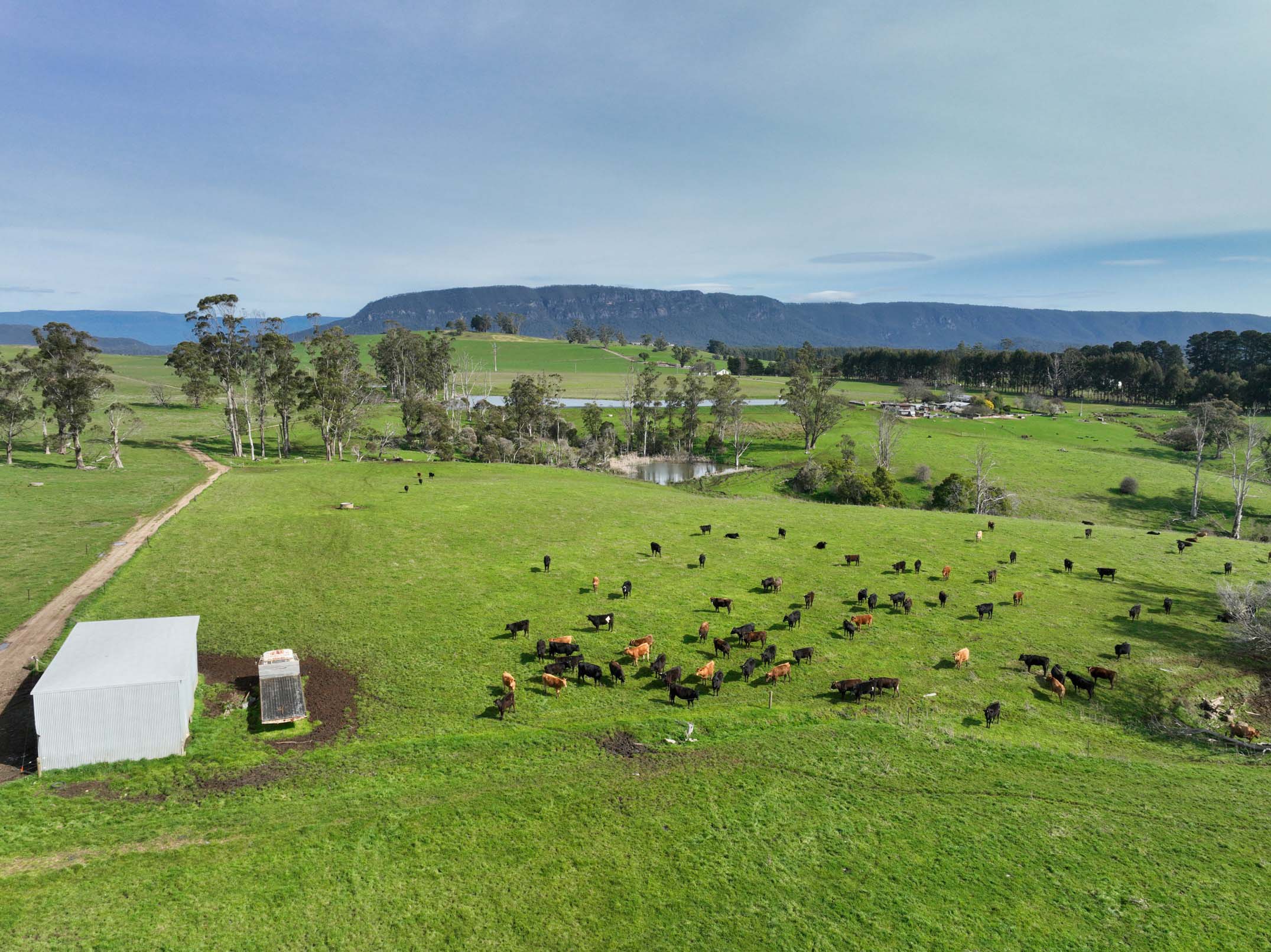UK rural property: Making farming’s voice heard
The Knight Frank Rural Property and Business Update – Our weekly dose of news, views and insight from the world of farming, food and landownership
9 minutes to read
Opinion
With farmer protests spreading across the Channel from the EU it’s easy to view direct action as the easiest way to influence government policy, but sometimes protest needs to be more mundane. Take Wales for example - thousands of Welsh farmers, supported by the controversial No Farmers, No Food campaign, descended on Cardiff recently to voice their concerns about the Welsh Assembly’s controversial Sustainable Farming Scheme (SFS). But have all the protestors also shared their views by taking part in the public consultation on the scheme, which is still open? It’s easy to leave these things to member organisations like the Farmers’ Union of Wales, but numbers matter. Environmental groups are good at motivating their members to take part in such consultations, so it’s perhaps not surprising that is often the direction policies end up taking. And green influencers with huge followings like George Monbiot also seem to do their homework. They are already starting to unpick, in their view, some of the criticism of SFS by pointing out that the 10% woodland target includes existing trees and hedgerows and can also contribute to the 10% nature target. Farmers need to use all avenues to make their voices heard.
Do get in touch if we can help you navigate through these interesting times. You can sign up to receive this weekly update directly to your email here.
Andrew Shirley Head of Rural Research
In this week's update:
• Commodities – Wheat rebounds, lamb soars
• Overseas news – Africa donkey skin ban
• Welsh farming – Have your say on green plans
• Delinked payments – New Defra update
• The Budget – What’s in store?
• Nature restoration – EU passes new law
• HS2 – RICS investigates
• Reading – Feeling hungry?
• Ozzie rules – Down under opportunity
• The Wealth Report – Out soon
• Development land – Market stabilises.
• Farmland prices – 2023 ends on a high
• Country houses – 2023 better than expected
• The Rural Report – Watch the videos
Commodity markets
Commodities – Wheat rebounds, lamb soars
Feed wheat prices saw a weekly rise for the first time this year, but grain trader Frontier poured cold water on the chances of a more sustained rally: “There was little to be bullish about and the gains were more a desire for speculative traders to lock in profits as wheat futures bounced higher from their contract lows.” Meanwhile, deadweight lamb prices broke through the 700p/kg barrier last week off the back of tight supplies and strong demand. Easter and Ramadan are key dates in the lamb-consumption calendar.
Exports also jumped by 12% last year to £562 million, reports the AHDB.

Need to Know
Welsh farming – Have your say on green plans
Thousands of farmers descended on Cardiff last week to vent their fury at the rural policies of the Welsh Assembly. They are particularly angry about plans to make future support payments contingent on them dedicating 10% of their land to woodland and 10% to wildlife habitats. Wales-wide nitrate vulnerable zone proposals and the assembly’s plans to tackle bovine TB are also big issues. Protestors, however, still have until March 7th to take part in a consultation regarding the controversial Sustainable Farming Scheme.
Welsh Rural Affairs Minister Lesley Griffiths said: “This is a genuine consultation and I fully expect to make some changes to the proposals as a result of the responses. We are listening and we will consider all responses.”
Delinked payments – New Defra update
Defra has updated its guidance to delinked farm support payments, which is probably worth a read for anybody thinking of buying farmland. As of this year, Basic Payment Scheme (BPS) entitlements have been delinked and can no longer be transferred other than to somebody inheriting them from a deceased claimant. This means they will not be included in the sale of any land.
The Budget – What’s in store?
Chancellor Jeremy Hunt has one last chance to win over floating voters before the general election later this year when he presents his Budget on Wednesday. The scope for a vote-winning series of major tax giveaways seems slim, but pundits are predicting modest cuts to National Insurance or Income Tax. Some rural property owners may be affected by the mooted measures needed to pay for those cuts. For those from overseas, the non-dom tax regime is widely expected to be scrapped or reformed, while the tax benefits of offering residential properties on short-term lets are also at risk.
Talking points
Nature restoration – EU passes new law
As discussed above, farmers across Europe have been protesting against government moves to force them to farm in a more nature-friendly way. They have won some concessions, with EU Agriculture Ministers calling for the whole structure of the Common Agricultural Policy (CAP) to be reviewed to put more focus on food, but it hasn’t stopped the European Parliament from introducing controversial new nature-restoration legislation. The new law sets a target for the EU to restore at least 20% of its land and sea areas by 2030 and all ecosystems in need of restoration by 2050. The ambitious targets include planting 3 billion additional trees, restoring at least 25 000 km of rivers, and restoring at least 30% of drained peatlands by 2030. Under an emergency brake clause, targets for agricultural ecosystems can be suspended under exceptional circumstances if they severely reduce the land needed for sufficient food production for EU consumption.
HS2 – RICS investigates
According to documents seen by Property Week magazine the Royal Institution of Chartered Surveyors (RICS), has started an investigation into some of those employed by HS2 to negotiate compulsory purchase orders (CPO) with affected property owners along the route. One aspect of interest is the alleged use of non-disclosure agreements (NDAs) as part of the CPO process. RICS says it is doesn’t have the remit to investigate HS2 Ltd itself, and is not reviewing wider CPO legislation. If you need CPO advice please contact our dedicated team.
Overseas news – Africa donkey skin ban
It was fantastic to see some joined up political thinking for once as the African Union last week agreed to ban the slaughter of donkeys for their skins. Millions of the continent’s donkeys have been stolen and brutally killed to fuel the demand for Ejiao, a traditional Chinese medicine made from their skins. Small-scale farmers and businesses that use donkeys have been hit hard by the trend as their animals are often the only thing separating them from a meagre income and destitution. The Donkey Sanctuary, a client of Knight Frank, played a key role in raise awareness of the issue. You can read about their work on page 74 of the 2022 edition of The Rural Report.
Knowledge exchange
Reading – Feeling hungry?

This week’s reading recommendation comes from Beth Lake, our Head of Rural Marketing. Beth has been getting her teeth into former government food advisor Henry Dimbleby’s latest book Ravenous – How to get ourselves and our planet into shape, which she describes as “a well-balanced, comprehensive guide to food production and land use in the UK from the perspective of policy makers”.
“It was refreshing to hear that it isn’t just as simple as livestock farming being bad for the climate and that we aren’t powerless to counter the effects that the growth of consumerism has had on our planet and their health. But it was sobering to read about the lobbying power corporations now hold over the government’s ability to make positive changes. This may seem obvious but is perhaps not as widely known by many - it wasn’t something I had considered before. There are also sections on future land use strategy and the possible opportunities for natural capital markets. As a book, it’s easy to digest and engaging which feels positive for increasing awareness and gaining traction with the wider public, something which is crucial for the future potential that our land holds for everyone.”
Property News
Ozzie rules – Down under opportunity

Fancy better weather? Fed up of farming in the UK? Then Kellie Morris of our Tasmanian farm sales’ team has a 400-acre mixed-farming opportunity in Weegena on the north-west of the island that could be of interest. “Glenferrie boasts an impressive array of unique opportunities such as cropping with fresh soil, as it’s been under pasture for many years. It has historically operated as an intensive dairying and grazing enterprise ideally suited for winter milking,” says Kellie
Our Latest Property Research
The Wealth Report – Out soon
The 2024 edition of The Wealth Report, Knight Frank’s leading piece of thought leadership on global wealth and property trends goes live next Wednesday (March 6th). This instalment of the report includes an article by yours truly on global farmland markets and how they are being influenced by ESG and Natural Capital. Sign up to get your copy as soon as it launches.
Development land – Market stabilises.
Newly released figures from the Knight Frank Residential Land Index show that England greenfield and urban brownfield values were flat in Q4 2023 compared with the previous quarter. Previously, urban brownfield values had fallen by 20% since the most recent peak of the market in the first quarter of 2022 up to Q3 last year, with greenfield down 17% during the same period. Greater economic confidence and a slowdown in the rise of build costs helped underpin values, says my colleague Anna Ward. Read her full report for more numbers and insight.
Farmland prices – 2023 ends on a high
The Q4 2023 instalment of the Knight Frank Farmland Index has now been published. The average value of bare agricultural land rose by 2% in the final quarter of the year to break the £9,000/acre barrier for the first time. Annual growth was 7%, which outperformed a number of other asset classes. Our research suggests values may flatten out this year, but supply remains limited and demand robust. Read the full report for more insight and analysis.
Country houses – 2023 better than expected
Kate Everett-Allen, our international residential research guru, has added the country homes market to her portfolio and has a bit of good news to report. “Prime country house prices declined by 5.8% in 2023. While this figure represented a sizable correction after two stellar years of growth, the rate of decline was lower than our forecast of -7% for the year. A growing sense that mortgage rates are at, or close to their peak, began to influence market sentiment towards the end of the quarter – a theme we expect to build this year. That’s not to say prices and sales volumes will bounce back strongly. Although the Bank of England opted to hold interest rates at 5.25% in December, the cost of borrowing remains at a 15-year high.” Read Kate’s full report.
The Rural Report – Watch the videos!
You've read the book, now watch the videos! To complement the thought-provoking articles contained within the 2023/2024 edition of The Rural Report our whizzy Marketing team has also created a series of videos featuring many of the report's contributors. Head to our very own YouTube channel to discover more about biodiversity net gain and regenerative farming; find out how we are helping Guy Ritchie's Ashcombe Estate on its diversification journey; and read about the travails of an entrepreneurial Zimbabwean searching for a farm for his family. Plus, lots more.